
Being able to speak about your nationality and the nationality of others is an important skill when you’re learning any language. After all, for many people this is the primary characteristic they identify with. How do Polish citizens speak about their Polish nationality? How to say your nationality in Polish? You’ll learn that today along with many words for nationalities and related phrases and expressions.
 Table of Contents
Table of Contents
- Top 15 Nationalities in Poland
- Asking About Nationalities
- How to Tell Someone Your Nationality
- Cities and Languages
- Final Thoughts
1. Top 15 Nationalities in Poland
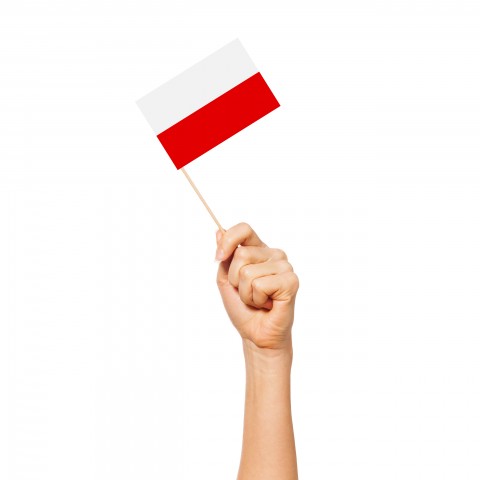
In this section you’ll find out how to form the names of nationalities in Polish, who apart from Poles lives in and visits Poland and what are the Polish names of continents.
A- Countries and Nationalities
Names of countries and nationalities are often connected in Polish, just like in many other languages. Let’s take Poland as an example:
- – Polska – Poland
– Polak – Pole (a holder of a Polish passport)
As you can see the two names are closely related. It’s important to note that adjectives can’t be used to describe nationality in Polish. For instance, in English we can say “He’s Polish”, but in Polish we can only say the equivalent of “He’s a Pole.”
- – On jest Polakiem. – meaning: “He’s Polish”, literal meaning: “He’s a Pole.”
Nationality forms are different for different genders and numbers. Here’s an example of people with a Polish citizenship:
- – Singular: Polak – a male Pole
– Singular: Polka – a female Pole
– Plural: Polacy – male Poles
– Plural: Polki – female Poles
Like in English we capitalize nationalities and country names. It’s important to note that there are many different suffixes that can be added to form nationalities in Polish. This is why it’s best to learn them by a mixture of memorisation techniques and exposing yourself to Polish by reading and listening in this language.
The masculine form of an adjective from the word “Polska” is “polski”. This can be used as the name of the language or a descriptive adjective:
- – Lubię (język) polski. – I like (the) Polish (language).
– To jest polski mężczyzna. – He’s a Polish man.
– On ma polską narodowość. – He has a Polish nationality.
B- The List of Top Nationalities in Poland
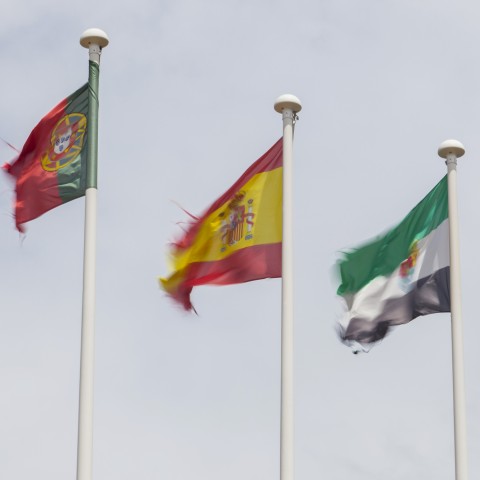
Poland is a major tourist destination. There are also people of many nationalities who live in Poland short-term as well as permanent residents. You can find the full list here. Below are the most notable of these nationalities in Polish:
| COUNTRY | MALE NATIONALITY | FEMALE NATIONALITY |
| 1. Germany – Niemcy | Niemiec | Niemka |
| 2. UK – Wielka Brytania | Brytyjczyk | Brytyjka |
| 3. Netherlands – Holandia | Holender | Holenderka |
| 4. Austria – Austria | Austriak | Austriaczka |
| 5. Italy – Włochy | Włoch | Włoszka |
| 6. France – Francja | Francuz | Francuzka |
| 7. Sweden – Szwecja | Szwed | Szwedka |
| 8. Denmark – Dania | Duńczyk | Dunka |
| 9. Belgium – Belgia | Belg | Belgijka |
| 10. Spain – Hiszpania | Hiszpan | Hiszpanka |
| 11. Ireland – Irlandia | Irlandczyk | Irlandka |
| 12. Finland – Finlandia | Fin | Finka |
| 13. Portugal – Portugalia | Portugalczyk | Portugalka |
| 14. Greece – Grecja | Grek | Greczynka |
| 15. Ukraine – Ukraina | Ukrainiec | Ukrainka |
Do you remember by now how to say these nationalities in Polish? What is your nationality in Polish? Let us know in the comments section. You can learn even more with our lesson on nationality and world countries.
C- Continents in Polish
Apart from knowing nationalities, it’s also good to learn about the names of continents in Polish:
- Europa – Europe
Do you know our lesson on the Polish movie Europa, Europa? - Afryka – Africa
- Azja – Asia
- Ameryka Północna – North America
- Ameryka Południowa – South America
- Australia – Australia
- Antarktyka – Antarctica
Learn other essential vocabulary related to this topic with our lesson World Continents and Territories.
2. Asking About Nationalities
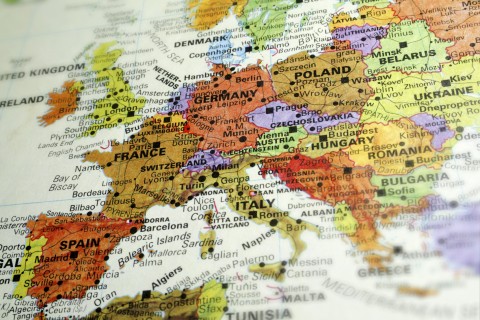
When you meet new people in Poland, it’s nice to be able to ask them about their nationality in Polish. Here are a few ways of doing it in both formal and informal context:
- Skąd pochodzisz? – Where are you from? (informal)
- Skąd Pan/Pani pochodzi? – Where are you from, Mr/Mrs? (formal)
- Z jakiego kraju pochodzisz? – Which country are you from? (informal)
- Z jakiego kraju Pan/Pani pochodzi? – Which country are you from, Mr/Mrs? (formal)
- Jaka jest twoja narodowość? – What’s your nationality? (informal)
- Jaka jest Pańska/Pani narodowość? – What’s your nationality, Mr/Mrs? (formal)
- Jak jest twoja narodowość po polsku? – What is your nationality in Polish? / How to say your nationality in Polish (informal)
- Jak jest Pana/Pani narodowość po polsku? – What is your nationality in Polish, Mr/Mrs? / How to say your nationality in Polish, Mr/Mrs? (formal)
You can learn even more with our lesson “Talking nationality in Polish”.
3. How to Tell Someone Your Nationality
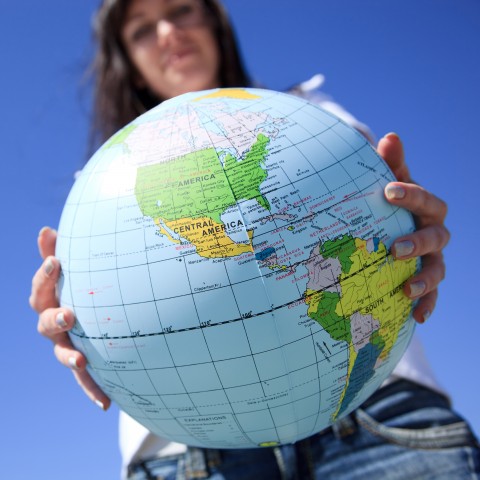
There’s a number of structures used for speaking about nationalities in Polish:
- To jest + nominative – This is…
Ex. To jest Polak. – This is a Pole.
To jest Anglik. – This is an Englishman.
This phrase would be used rarely. A much more common structure is the one below:
- The verb “być” (to be) + instrumental
Ex. On jest / Jestem Polakiem. – He’s/I’m a Pole.
On jest / Jestem Anglikiem. – He’s/I’m an English person.
Having trouble conjugating the verb “to be” or other verbs in Polish? Use cooljugator!
Let’s have a look at some other possibilities:
- Pochodzę z Polski/Anglii/USA. – I come from Poland/England/USA.
- Urodziłem/Urodziłam się w Polsce, ale większość życia spędziłem/spędziłam we Włoszech. – I was born in Poland, but I’ve spent most of my life in Italy.
The first form is for male speakers, the second for female speakers. Find out more vocabulary related to speaking about where you live and where you were born with our lesson “Where in Poland do you live?” - Jestem Belgiem, ale mieszkam w Anglii. – I’m Belgian, but I live in England.
- Jestem pół Włochem, pół Francuzem. – I’m half Italian, half French.
- Mam dwa paszporty. – I have two passports.
4. Cities and Languages
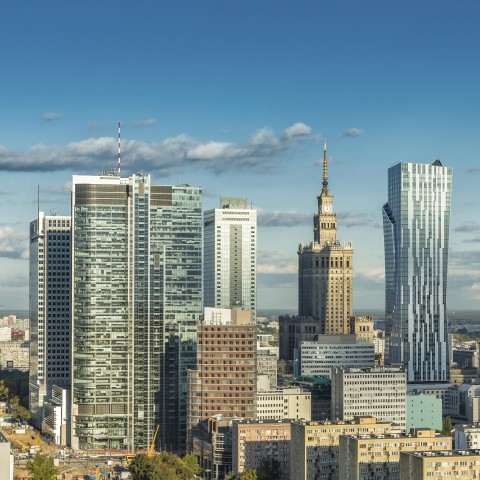
Apart from being able to speak about your nationality in Polish, you should also know how to speak about where you live and what languages you speak.
| COUNTRY | CAPITAL | MALE NATIONALITY | FEMALE NATIONALITY | LANGUAGE |
| Poland – Polska, (the official name: Republic of Poland – Rzeczpospolita Polska) | Warsaw – Warszawa | Polak | Polka | polski |
| Germany – Niemcy | Berlin – Berlin | Niemiec | Niemka | niemiecki |
| UK – Wielka Brytania | London – Londyn | Brytyjczyk | Brytyjka | angielski |
| Netherlands – Holandia | Amsterdam – Amsterdam | Holender | Holenderka | holenderski/ niderlandzki |
| Austria – Austria | Vienna – Wiedeń | Austriak | Austriaczka | niemiecki |
| Italy – Włochy | Rome – Rzym | Włoch | Włoszka | włoski |
| France – Francja | Paris – Paryż | Francuz | Francuzka | francuski |
| Sweden – Szwecja | Stockholm – Sztokholm | Szwed | Szwedka | szwedzki |
| Denmark – Dania | Copenhagen – Kopenhaga | Duńczyk | Dunka | duński |
| Belgium – Belgia | Brussels – Bruksela | Belg | Belgijka | francuski, holenderski, niemiecki |
| Spain – Hiszpania | Madrid – Madryt | Hiszpan | Hiszpanka | hiszpański |
| Ireland – Irlandia | Dublin – Dublin | Irlandczyk | Irlandka | irlandzki, angielski |
| Finland – Finlandia | Helsinki – Helsinki | Fin | Finka | fiński |
| Portugal – Portugalia | Lisbon – Lizbona | Portugalczyk | Portugalka | portugalski |
| Greece – Grecja | Athens – Ateny | Grek | Greczynka | grecki |
| Ukraine – Ukraina | Kyiv – Kijów | Ukrainiec | Ukrainka | ukraiński |
To learn more European city names in Polish check out this list. Meanwhile, here are a few examples of structures to make sentences with the details from the table above:
- Jestem Hiszpanem. Mieszkam w Madrycie, w Hiszpanii i mówię po hiszpańsku. – I’m Spanish. I live in Madrid in Spain and I speak Spanish.
Do you prefer living in the city or living in the countryside? Click on the links to learn useful vocabulary around these topics.
- być + [nationality] in the instrumental case – to be [nationality]
Ex. Jestem Finem. – I’m Finnish.
Ona jest Greczynką. – She’s Greek.
On jest Irlandczykiem. – He’s Irish.
- mieszkać w + [place] in the locative case (true for both the city and the country) – to live in [place]
Ex. Mieszkam w Lizbonie. – I live in Lisbon.
Długo już mieszkasz w Kijowie? – Have you been living in Kyiv long?
On chce mieszkać w Rzymie. – He wants to live in Rome.
- mówić po + Polish with the suffix -u – to speak Polish
Ex. Mówię po angielsku. – I speak English.
Nie mówimy po francusku. – We don’t speak French.
Mówicie po niemiecku? – Do you speak German?
- znać + Polish in the accusative case – to know Polish
Ex. Znam włoski. – I speak Italian.
Ona zna biegle szwedzki. – She speaks Swedish fluently.
Wszyscy mówimy po hiszpańsku. – We all speak Spanish.
Speaking of languages, do you know how to ask “Do you speak Polish?”. If you feel like your Polish isn’t good enough yet, when in Poland you may want to ask someone “Do you speak English?”.
5. Final Thoughts
What is your nationality in Polish? You should be able to answer this question after reading this blog post. You’ve learnt today many nationalities, names of countries, capitals as well as names of languages. You’ve also acquired the structures used for speaking about these things in Polish. These skills will help you communicate in Polish and make friends in this language.
Unfortunately, this isn’t enough, if you really want to speak Polish and be able to communicate in this language freely. A good way of structuring your learning and making sure that you know a lot of vocabulary, is finding a place where you can find structured information. You’re lucky, because PolishPod101 is exactly this kind of platform.
You can use countless recordings and video lessons as well as numerous additional resources to learn with us. Lessons are divided by levels and cover all the most important topics you could think of. Your learning is structured thanks to pathways designed according to the needs of each level of Polish fluency. Don’t hesitate and join PolishPod101 today!










